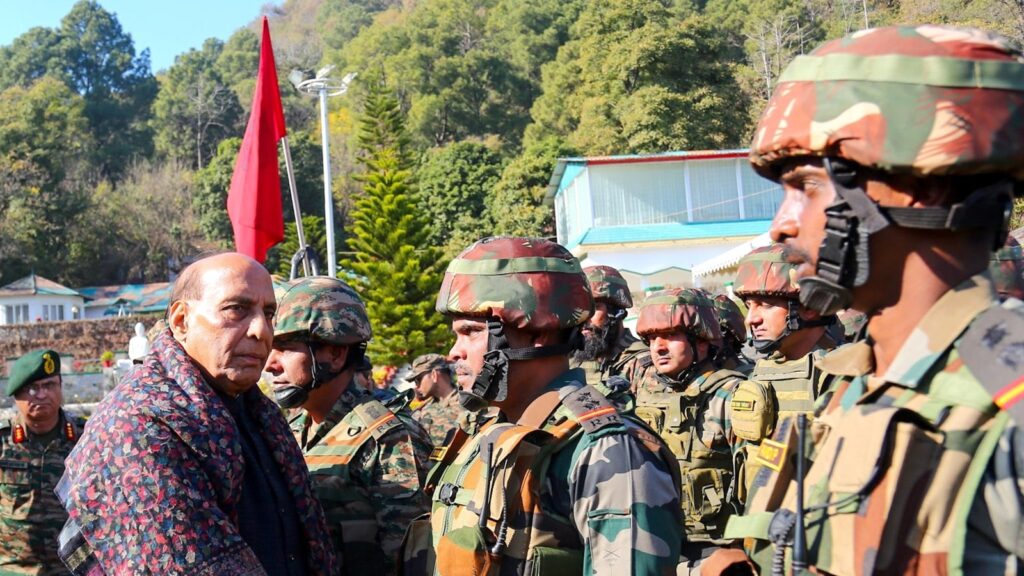In his first visit to Jammu and Kashmir after the December 21 Surankote, Poonch terror attack, defence minister Rajnath Singh made a conscious effort to reach out to the civilian population in the region. Singh met the families of the three local residents who had died in the custody of security forces after being picked up for interrogation following the terror attack, and assured them of “an expeditious investigation into the incident culminating into deliverance of justice”. Later, the brother of one of the deceased, a BSF jawan, said Singh expressed regret over the death and assured family members that the guilty wouldn’t be spared. The minister also met the Army brass and lauded the soldiers as “protectors” of the nation, but reminded them that they also needed “to win the hearts of the people”. Singh’s outreach follows Indian Army chief Manoj Pande’s orders to soldiers that they must conduct operations in a professional manner and his statement that the force has zero tolerance for human rights violations.
The admission of a slip-up by security personnel, immediate distribution of compensation, and the readiness to probe the allegations of custodial deaths and the promise of justice to the victims, from the highest authorities in the security apparatus is heartening. It sends out a message to the local population as well as within the forces: Custodial killings can only alienate the local population, which will have consequences for the Army’s own anti-terror operations. The Rajouri-Poonch region, where four security personnel died last Thursday, seems to be becoming a new theatre of terrorism — 29 Army personnel have been killed in terror attacks since October 2021. The support of local residents, especially intelligence inputs, will be essential for the Army’s pushback in the region.
Rajnath Singh’s visit also highlights the importance of political representatives in facilitating a healing process. Security forces are trained for operations; civilian outreach is the responsibility of public representatives. This is why holding elections in Jammu and Kashmir is important, a key fact that the Supreme Court flagged while upholding the Centre’s 2019 decision to abrogate Article 370. “Naya Kashmir” cannot be built just on the promise of material prosperity, the edifice has to be raised on the foundations of representative democracy.
Continue reading with HT Premium Subscription
Daily E Paper I Premium Articles I Brunch E Magazine I Daily Infographics


